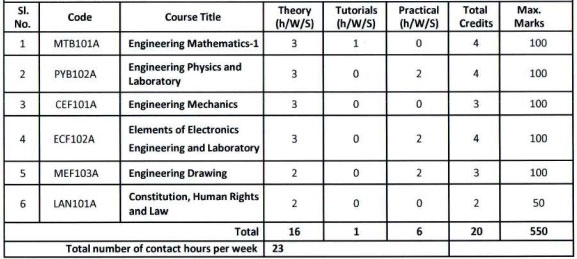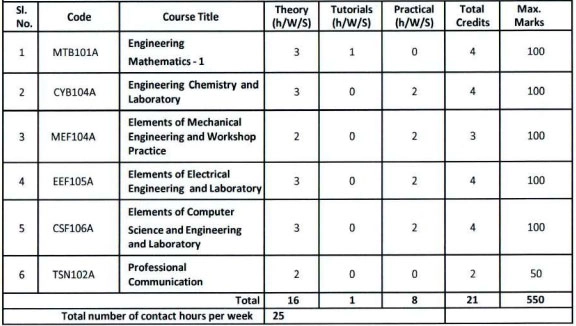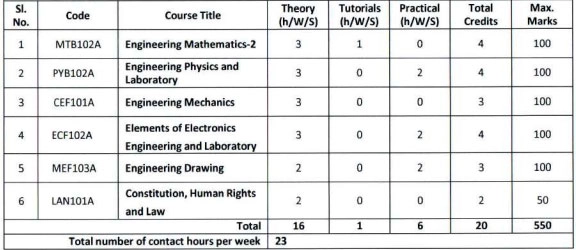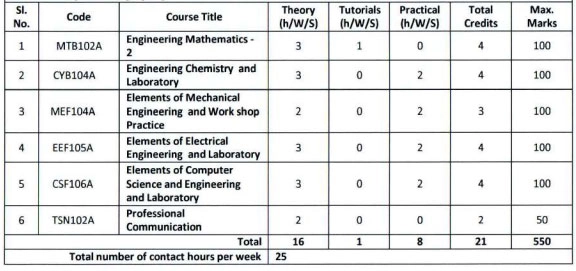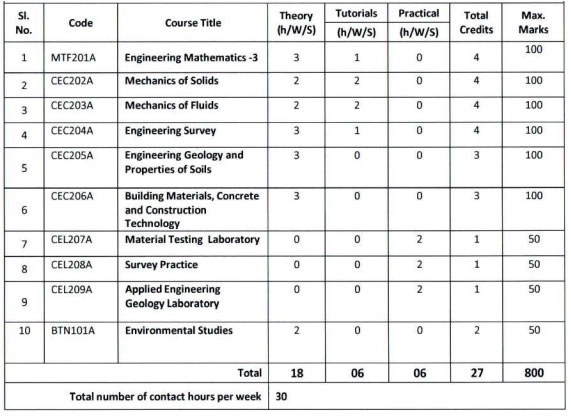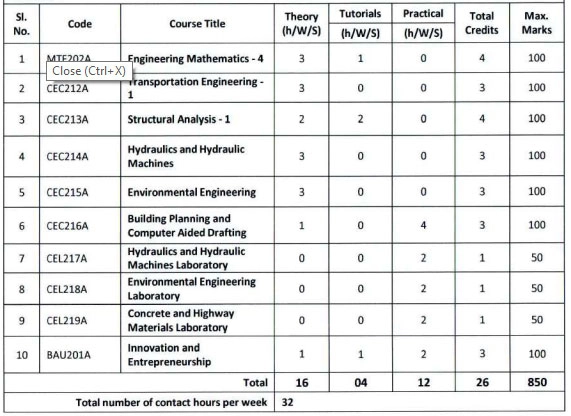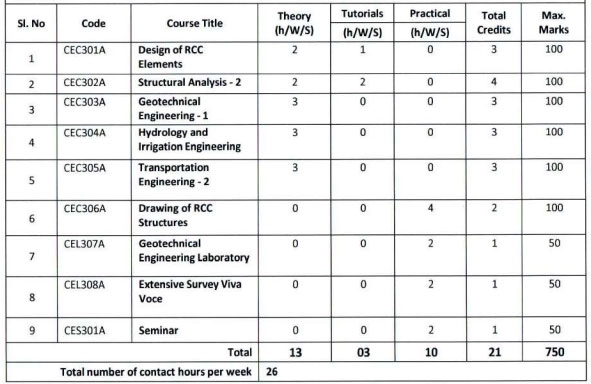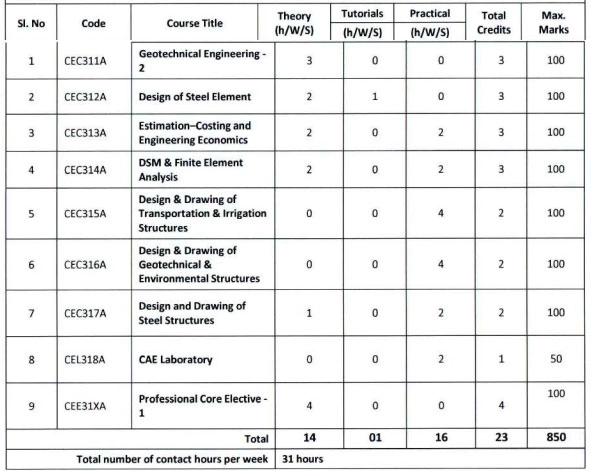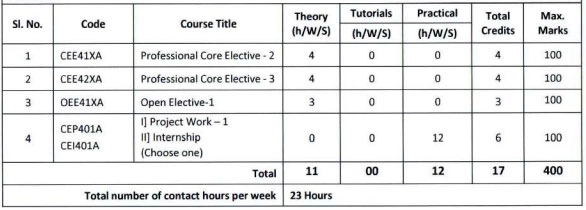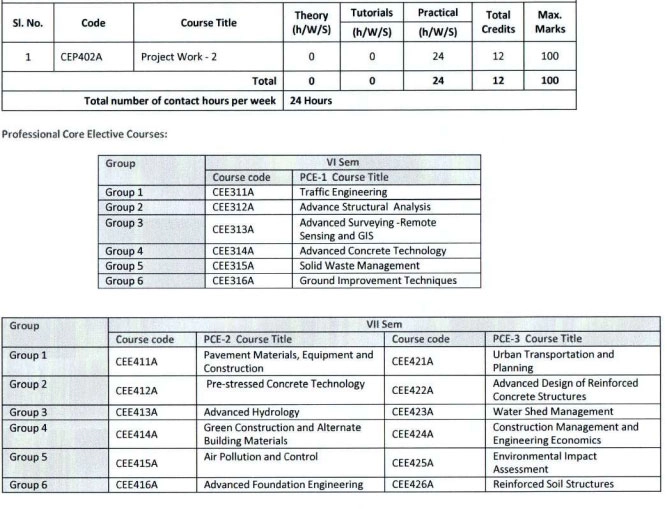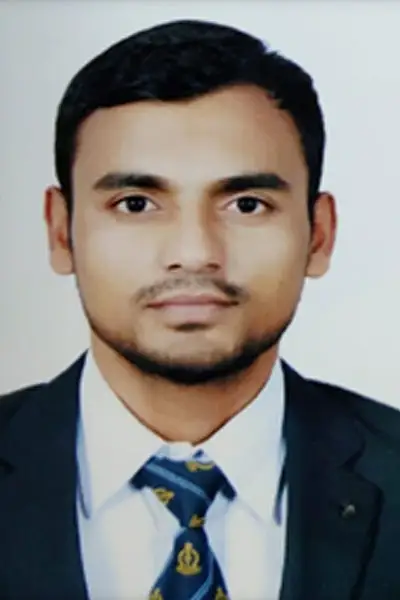- Faculty
Faculty of Engineering and Technology
- Department
Department of Civil Engineering
- Campus
Technology Campus (Peenya Campus)
- Engagement Mode
Full Time
- Study
4 Years
Overview
The Department of Civil Engineering at MS Ramaiah University of Applied Sciences (MSRUAS) is positioned at the forefront of engineering education, responding dynamically to the rapid growth of infrastructure and the evolving job market in India. The country’s infrastructure sector is experiencing unprecedented growth, driven by ambitious government projects such as the Smart Cities Mission, Bharatmala Pariyojana, and the expansion of metro rail networks. The Indian construction industry is projected to grow at a compound annual growth rate (CAGR) of 6.6% from 2023 to 2027, with investments in infrastructure reaching approximately $777 billion by 2027. This surge has created a robust demand for skilled civil engineers, with an estimated need for over 20 million civil engineers by 2030 to meet the country’s infrastructure goals.
In this rapidly expanding landscape, the Department of Civil Engineering at MSRUAS stands out for its commitment to excellence in education, research, and industry collaboration. The department offers a comprehensive curriculum that blends theoretical knowledge with practical application, preparing students to meet the challenges of modern infrastructure development. The department’s focus areas include structural engineering, geotechnical engineering, transportation engineering, environmental engineering, and construction management, all of which are critical to the nation’s infrastructure growth.
The current scenario at MSRUAS reflects the department’s proactive approach to keeping pace with industry demands. The faculty comprises experienced professionals and academicians who bring real-world insights into the classroom, ensuring that students are well-versed in the latest industry trends and technologies. The department is equipped with state-of-the-art laboratories and research facilities that support advanced study in areas such as smart materials, sustainable construction practices, and disaster-resistant infrastructure. These facilities enhance the learning experience and also foster innovation, enabling students to contribute to cutting-edge research that addresses real-world challenges.
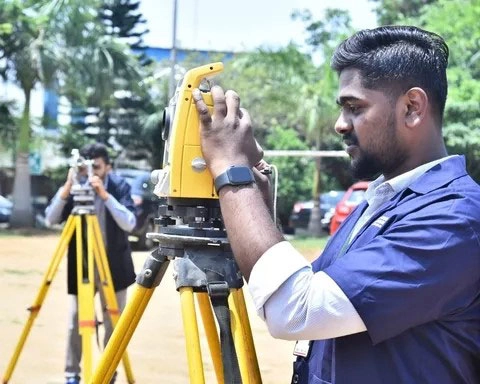

Program Objectives
- - To impart knowledge on Civil Engineering systems and their subsystems
- - To enhance the understanding of the underlying engineering principles of Civil Engineering systems
- - To model, simulate and analyze the behavior of Civil Engineering systems to predict and improve their performance
- - To design and build Civil Engineering systems to meet the specific needs
- - To impart training on instrumentation and testing of Civil Engineering systems
- - To train students on commercial software tools to design, model, simulate civil engineering systems
- - To build and test Civil Engineering systems
- - To impart training on professional ethics, history, economics, social sciences and interactive skills relevant to professional practice
- - To provide a general perspective on lifelong learning and opportunities for a career in industry, business and commerce
Overall, the Department of Civil Engineering at Ramaiah University of Applied Sciences is dedicated to providing students with a high-quality education in Civil Engineering, equipping them with the knowledge, skills, and values necessary to succeed in the rapidly evolving field of Civil Engineering.
Programme Specific Outcomes (PSOs)
- PSO-1. Apply the knowledge of Civil engineering Analysis and Design in to develop efficient solutions for complex problems in Civil engineering and allied areas using analytical and cognitive skills.
- PSO-2. Design and develop sustainable solutions using Civil engineering principles, concepts, experimentation and appropriate tools to address industry and societal requirements
- PSO-3. Demonstrate ethics, leadership qualities, communication, entrepreneurial skills and involvement in lifelong learning for the betterment of organization, environment and society
Program Educational Objectives (PEOs)
- PEO-1. To Provide students with knowledge in mathematics, science and core engineering area to enable them to deliver efficient solutions for complex engineering problems using analytical and cognitive skills
- PEO-2. To enable students to design and develop the sustainable innovative solutions for industry and societal requirements by conducting engineering investigations through experimentation and usage of modern tools.
- PEO-3. To inculcate ethics, communication, leadership, soft, managerial and entrepreneurial skills for successful career in industries and to engage in lifelong learning
Eligibility Criteria
- Pass in 2nd PUC / 12th Std / Equivalent Exam with English as one of the Languages and obtained a Minimum of 45% of Marks in aggregate in Physics
and Mathematics along with Chemistry / BioTechnology / Biology / Electronics / Computer. - Admission to University quota will be based on COMEDK/JEE/KCET scores.
Highlights
Proctoral System
Under the Proctoral System, every student is assigned a faculty member as a Proctor or a mentor.
These mentors offer guidance, support and encouragement to students, helping them as they progress along their academic journey. From the choice of electives to their academic performance, from attendance to meeting their credit requirements, students can approach these mentors with any and every query.
Proctors also interact with parents/guardians and keep them updated on the progress of students.
To ensure that they reap the benefits of the Proctoral System, students are advised to be in regular contact with their Proctors.
Structure
Fee Structure 2025–26
| Course | Total Fee Per Year |
|---|---|
| Civil Engineering | Rs. 240,000 |
Intake
30 Seats
Career Path
- Structural Engineer
- Transportation Engineer
- Construction Manager
- Geotechnical Engineer
- Water Resource Engineer
Testimonial
Contact
Start your journey with MSRUAS
Department of Civil Engineering.
Contact
Phone +91 80-4906 5555
Email hod.ce.et@msruas.ac.in
